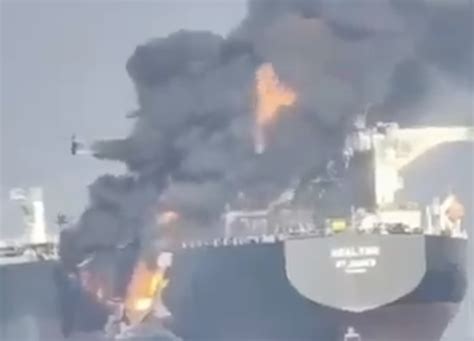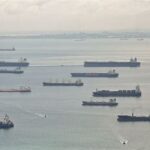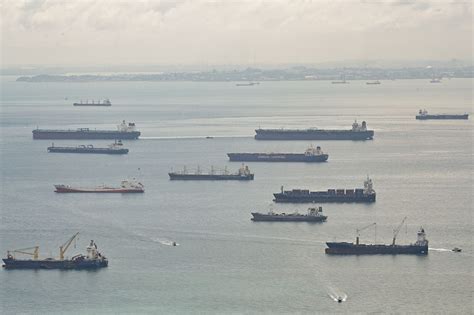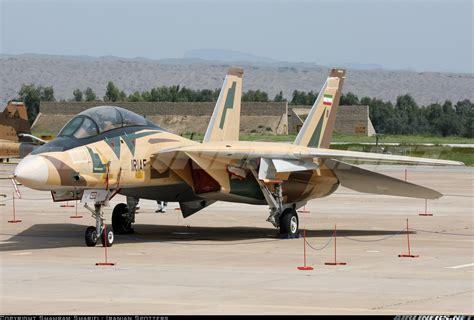
A collision between two tankers, one reportedly part of the “dark fleet” suspected of illicitly transporting sanctioned oil, sparked a fire in the Gulf of Oman near the Strait of Hormuz, a critical waterway for global energy supplies. The incident, occurring on Sunday, has raised concerns about maritime safety and the potential environmental impact of vessels operating outside international shipping regulations.
According to reports, one of the vessels involved was the Pablo, a Gabon-flagged tanker. Details regarding the other vessel remain unclear. The fire broke out following the collision, prompting immediate responses to contain the blaze and assess the extent of the damage.
The “dark fleet,” a network of older vessels often operating with obscured ownership and insurance, has become increasingly prominent in facilitating oil exports from countries facing international sanctions, such as Iran and Venezuela. Their involvement raises concerns due to their often-questionable safety standards and potential for environmental damage.
The collision between the two tankers near the Strait of Hormuz has ignited a fire and sparked concerns about maritime safety, potentially illicit activities, and environmental hazards. The incident highlights the risks associated with the “dark fleet” vessels involved in transporting sanctioned oil.
Details of the Incident
The collision took place on Sunday in the Gulf of Oman, a crucial waterway connecting the energy-rich Middle East to global markets via the Strait of Hormuz. Initial reports identified one of the tankers as the Pablo, a vessel sailing under the flag of Gabon. Specific details concerning the second vessel involved are still emerging, but investigations are underway to determine its identity and role in the incident.
The collision resulted in a fire erupting onboard one or both of the tankers, necessitating immediate responses from regional maritime authorities and emergency services. Efforts are focused on containing the fire, preventing further escalation, and assessing the extent of the damage to the vessels and the surrounding marine environment.
The ‘Dark Fleet’ and Sanctioned Oil
The term “dark fleet” refers to a network of older, often poorly maintained tankers that operate outside of established international shipping regulations and transparency mechanisms. These vessels are frequently used to transport oil from countries facing sanctions, such as Iran, Venezuela, and Russia, enabling them to circumvent trade restrictions imposed by international bodies, the United States, and other nations.
The “dark fleet” vessels are characterized by several factors, including:
- Obscured Ownership: They often operate under shell companies or complex ownership structures, making it difficult to trace their beneficial owners and hold them accountable for their actions.
- Lack of Insurance: Many “dark fleet” vessels lack adequate insurance coverage, leaving them unable to compensate for potential damages caused by accidents, spills, or other incidents.
- Poor Maintenance: The vessels are frequently older and poorly maintained, increasing the risk of mechanical failures, collisions, and other safety hazards.
- Flagging Issues: They often sail under flags of convenience, which may have lax enforcement of safety and environmental regulations.
- AIS Manipulation: Some “dark fleet” vessels manipulate their Automatic Identification System (AIS) transponders, turning them off or broadcasting false information to conceal their movements and avoid detection.
The use of “dark fleet” vessels has grown significantly in recent years as international sanctions have tightened on oil-producing countries. These vessels allow sanctioned countries to continue exporting oil, generating revenue, and maintaining their economic stability.
Risks and Concerns
The operation of “dark fleet” vessels poses several risks and concerns:
- Maritime Safety: The poor maintenance and lack of adherence to safety regulations increase the risk of accidents, collisions, and other maritime incidents, endangering the lives of seafarers and potentially disrupting shipping lanes.
- Environmental Damage: “Dark fleet” vessels are more likely to be involved in oil spills or other environmental disasters due to their age, poor maintenance, and lack of insurance coverage. Such incidents can have devastating consequences for marine ecosystems and coastal communities.
- Sanctions Evasion: The use of “dark fleet” vessels undermines the effectiveness of international sanctions, allowing sanctioned countries to continue exporting oil and generating revenue.
- Illicit Activities: “Dark fleet” vessels may also be involved in other illicit activities, such as smuggling, money laundering, and terrorism financing.
- Geopolitical Instability: The operation of “dark fleet” vessels can contribute to geopolitical instability by undermining international norms and creating tensions between countries.
The Strait of Hormuz: A Critical Chokepoint
The Strait of Hormuz is a narrow waterway located between Iran and Oman that connects the Persian Gulf to the Gulf of Oman and the Arabian Sea. It is one of the world’s most strategically important chokepoints for oil transit, with approximately 20% of the world’s total oil supply passing through it daily.
Any disruption to shipping in the Strait of Hormuz can have significant consequences for global energy markets, potentially leading to price spikes and supply disruptions. The presence of “dark fleet” vessels in the region adds to the risk of such disruptions due to their increased likelihood of accidents and their potential involvement in geopolitical tensions.
Response and Investigation
Following the collision, regional maritime authorities launched an immediate response to contain the fire and assess the damage. The extent of the environmental impact is being evaluated, and investigations are underway to determine the cause of the collision and the identities of the vessels involved.
The incident has prompted calls for increased vigilance and enforcement of maritime regulations to prevent similar incidents from occurring in the future. International organizations, such as the International Maritime Organization (IMO), are working to strengthen safety standards and combat illicit shipping activities.
Global Implications
The collision involving a suspected “dark fleet” tanker near the Strait of Hormuz has broader implications for global energy security, maritime safety, and international sanctions enforcement. The incident underscores the need for concerted efforts to address the risks associated with “dark fleet” operations and to ensure the safe and secure transit of oil through critical waterways.
The incident may also lead to increased scrutiny of shipping activities in the region and potentially stricter enforcement of sanctions against countries involved in illicit oil trade. The international community may also consider measures to improve transparency in the shipping industry and to hold accountable those who operate vessels in violation of international regulations.
Expert Opinions and Analysis
Maritime experts have expressed concerns about the growing presence of “dark fleet” vessels and their potential impact on maritime safety and the environment. They have called for greater international cooperation to address the issue and to ensure that vessels operating in the region comply with established safety standards and regulations.
“The ‘dark fleet’ is a serious threat to maritime safety and the environment,” said a maritime security analyst. “These vessels are often poorly maintained and operated by unscrupulous individuals who are willing to take risks to evade sanctions. The international community needs to take a more proactive approach to address this issue.”
The collision near the Strait of Hormuz serves as a stark reminder of the risks associated with “dark fleet” operations and the need for greater vigilance and enforcement of maritime regulations. The incident has the potential to further complicate geopolitical tensions in the region and to disrupt global energy markets.
Future Outlook
The future of “dark fleet” operations remains uncertain, but several factors are likely to influence their trajectory:
- Sanctions Policies: The tightening or loosening of international sanctions will affect the demand for “dark fleet” services.
- Enforcement Efforts: Increased enforcement of maritime regulations and sanctions can deter “dark fleet” activities.
- Technological Advancements: New technologies, such as satellite tracking and data analytics, can help to identify and monitor “dark fleet” vessels.
- Geopolitical Developments: Changes in geopolitical relations can affect the willingness of countries to tolerate “dark fleet” operations.
The international community faces a complex challenge in addressing the risks associated with “dark fleet” operations. A comprehensive approach that combines sanctions enforcement, maritime safety regulations, and international cooperation is needed to ensure the safe and secure transit of oil through critical waterways and to protect the marine environment.
The incident involving the Pablo and the unidentified tanker has highlighted the urgent need for a multi-faceted approach to address the dangers posed by the “dark fleet.” This includes enhanced monitoring, stricter enforcement of existing regulations, and international collaboration to dismantle the networks that facilitate these illicit activities. The consequences of inaction could be severe, ranging from environmental disasters to disruptions in global energy supplies and increased geopolitical instability.
Legal Ramifications
The collision and subsequent fire raise significant legal questions, including liability for damages, responsibility for environmental cleanup, and potential violations of international maritime law. Determining the ownership and insurance status of both vessels will be crucial in establishing liability and ensuring that appropriate compensation is provided for any damages caused.
The involvement of a suspected “dark fleet” tanker further complicates the legal issues. These vessels often operate in a legal gray area, making it difficult to hold them accountable for their actions. However, international law provides mechanisms for prosecuting individuals and entities involved in illicit shipping activities, and efforts are likely to be made to pursue legal action against those responsible for the collision and its consequences.
Impact on Insurance Markets
The increased use of “dark fleet” vessels has also had a significant impact on the marine insurance market. Traditional insurers are often unwilling to provide coverage for these vessels due to the high risks involved, leading to the emergence of specialized insurance providers that cater to the “dark fleet.”
However, these specialized insurers may have limited financial resources, raising concerns about their ability to pay out claims in the event of a major accident or environmental disaster. The collision near the Strait of Hormuz could further strain the marine insurance market and lead to increased premiums for all vessels operating in the region.
Technological Solutions
Technology can play a crucial role in combating “dark fleet” activities. Satellite tracking, data analytics, and artificial intelligence can be used to identify and monitor suspicious vessels, predict their movements, and detect violations of maritime regulations.
Governments and international organizations are investing in these technologies to improve their ability to track “dark fleet” vessels and to enforce sanctions more effectively. However, “dark fleet” operators are also adapting their tactics to evade detection, creating a constant cat-and-mouse game.
The Role of International Organizations
International organizations, such as the International Maritime Organization (IMO), play a vital role in setting safety standards and promoting cooperation among nations to combat illicit shipping activities. The IMO has adopted a number of measures to address the risks associated with “dark fleet” vessels, including stricter enforcement of existing regulations and the development of new standards for vessel tracking and identification.
However, the IMO’s effectiveness is limited by its reliance on member states to implement and enforce its regulations. Greater international cooperation and political will are needed to ensure that the IMO can effectively address the challenges posed by the “dark fleet.”
Alternative Energy Sources
The reliance on oil as a primary energy source contributes to the demand for “dark fleet” services. As the world transitions to cleaner and more sustainable energy sources, the demand for oil is expected to decline, potentially reducing the incentive for countries to engage in illicit oil trade.
Investments in renewable energy, energy efficiency, and alternative transportation technologies can help to reduce dependence on oil and mitigate the risks associated with “dark fleet” operations.
Community Impact
Coastal communities are particularly vulnerable to the environmental and economic consequences of “dark fleet” activities. Oil spills and other environmental disasters can damage fisheries, tourism, and other industries that rely on healthy marine ecosystems.
Governments and international organizations need to work with coastal communities to develop strategies for mitigating the risks associated with “dark fleet” operations and for ensuring that they are adequately compensated in the event of an accident or environmental disaster.
Moving Forward
The collision involving the Pablo and the unidentified tanker near the Strait of Hormuz serves as a wake-up call. It highlights the urgent need for a comprehensive and coordinated approach to address the risks associated with “dark fleet” operations. This includes:
- Strengthening Sanctions Enforcement: Enhancing international cooperation to enforce sanctions against countries involved in illicit oil trade.
- Improving Maritime Safety Regulations: Implementing stricter safety standards for all vessels operating in the region.
- Enhancing Vessel Tracking and Identification: Utilizing technology to track and identify suspicious vessels.
- Increasing Transparency in the Shipping Industry: Promoting greater transparency in vessel ownership and insurance.
- Holding Accountable Those Involved in Illicit Shipping Activities: Prosecuting individuals and entities involved in “dark fleet” operations.
- Investing in Alternative Energy Sources: Reducing dependence on oil and promoting the transition to cleaner and more sustainable energy sources.
- Supporting Coastal Communities: Working with coastal communities to mitigate the risks associated with “dark fleet” operations and to ensure that they are adequately compensated in the event of an accident or environmental disaster.
- Collaboration between governmental, NGOs, and Industry sectors: Improving the understanding and mitigation of risks by encouraging discussion and innovation across the international landscape.
By taking these steps, the international community can work together to ensure the safe and secure transit of oil through critical waterways and to protect the marine environment from the harmful effects of “dark fleet” operations. Only through concerted action can the risks posed by these shadowy fleets be mitigated and the integrity of the global maritime system be preserved.
FAQ
-
What is the “dark fleet” and why is it significant in this incident?
- The “dark fleet” is a term used to describe a network of older, often poorly maintained tankers that operate outside established international shipping regulations. They are frequently used to transport oil from countries facing sanctions, evading trade restrictions. Their involvement in this incident raises concerns due to their questionable safety standards, potential for environmental damage, and contribution to illicit trade. The collision highlights the risks associated with these vessels operating in critical waterways like the Strait of Hormuz.
-
Where did the tanker collision happen, and why is that location important?
- The collision occurred in the Gulf of Oman, near the Strait of Hormuz. This location is strategically vital as it’s a major chokepoint for global oil transit. Roughly 20% of the world’s oil supply passes through the Strait of Hormuz daily. Any disruption in this area can have significant ramifications for global energy markets, leading to potential price spikes and supply shortages.
-
What are the potential environmental impacts of this tanker collision and fire?
- The collision and subsequent fire pose substantial environmental risks. The primary concern is an oil spill, which could devastate marine ecosystems and coastal communities. Oil spills can harm marine life, contaminate water sources, and damage sensitive habitats like coral reefs and mangroves. The potential for long-term ecological damage and economic disruption is significant, requiring swift and effective containment and cleanup efforts.
-
What are the legal and insurance implications for a “dark fleet” vessel involved in a collision?
- The legal and insurance implications are complex due to the “dark fleet’s” obscured ownership and lack of adherence to international regulations. Determining liability for damages and environmental cleanup becomes challenging. These vessels often lack adequate insurance coverage, making it difficult to secure compensation for damages. The incident could lead to legal action against those responsible, further complicating the already intricate maritime law landscape.
-
What measures can be taken to prevent similar incidents involving “dark fleet” tankers in the future?
- Preventing future incidents requires a multi-faceted approach. This includes stricter enforcement of sanctions, improved maritime safety regulations, enhanced vessel tracking and identification technologies, increased transparency in the shipping industry, and holding accountable those involved in illicit shipping activities. Greater international cooperation and investments in alternative energy sources are also crucial to reducing dependence on oil and mitigating the risks associated with “dark fleet” operations.









